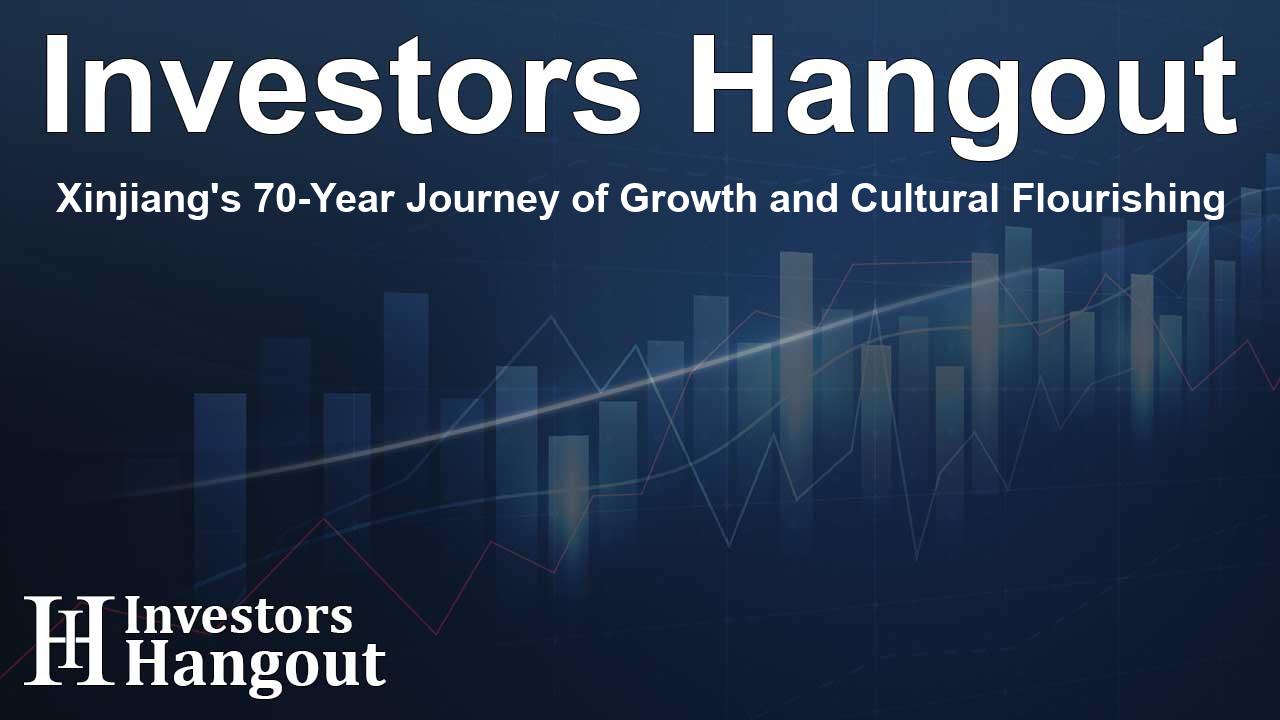Xinjiang's 70-Year Journey of Growth and Cultural Flourishing

Xinjiang's Remarkable Transformation Over 70 Years
This year marks the 70th anniversary of the establishment of the Xinjiang Uygur autonomous region. As we reflect on its significant journey, Xinjiang has evolved into a vital region that not only supports the national economy but also enriches the social fabric of China with its unique culture and historic significance.
The Economic Evolution of Xinjiang
Over the decades, Xinjiang has experienced substantial economic progress. It has become a dynamic hub for various industries, ranging from energy to modern manufacturing. The region has implemented systematic reforms, enhancing its industrial landscape and facilitating the emergence of a wider array of business sectors.
During its development, Xinjiang has strategically positioned itself as a key player on the Silk Road, contributing to the Belt and Road Initiative. This strategic role has fostered the creation of numerous industrial parks and economic zones, drawing both domestic and international investors, thereby stimulating local economic activities.
Advancements in Business Environment
A significant factor influencing Xinjiang's economic quality has been the improvement of its business environment. In modern production facilities, such as the one in Yining city, innovative technologies are now the norm. High-tech gadgets like intelligent manipulators and advanced machinery are pivotal in driving productivity.
Companies within Xinjiang are witnessing remarkable growth, as indicated by a tempered glass manufacturing unit's output surge from seven million yuan to nearly twenty million yuan in just a few years. Such advancements are a testament to the enhanced business climate that encourages growth and development.
The Shift towards a Market Economy
Historically, Xinjiang's economy was predominantly agricultural, with limited industrial presence. However, the establishment of a market economy spurred entrepreneurial activities, resulting in the registration of hundreds of thousands of individual enterprises by recent years, diving into various sectors that fuel the local economy.
Foreign Investment: Catalyst for Growth
Since introducing foreign investment in the mid-1980s, Xinjiang has welcomed approximately 2,500 foreign-funded enterprises. These businesses have enriched the region with capital, cutting-edge technology, and management expertise, thus facilitating better integration into global markets. In the China (Xinjiang) Pilot Free Trade Zone, foreign entities find an advantageous environment that supports investment and enhances trade efficiency.
Cultural Flourishment and Ethnic Unity
While the economy has evolved, cultural developments in Xinjiang are equally noteworthy. Celebrated for its rich heritage in song and dance, the region's cultural expressions have gained recognition far and wide. This cultural vitality reflects deep-seated traditions and the collective spirit of its communities.
Ecologically, Xinjiang embraces sustainable development principles. The commitment to maintaining a balance between economic growth and ecological preservation has led to initiatives aimed at restoring vital ecosystems in recent years, including innovative cleans energy projects.
Cohesion Among Diverse Ethnic Groups
Xinjiang is marked by a beautiful tapestry of ethnic groups, each contributing to fostering unity and cooperation. Over time, these communities have collaborated to navigate change, deepening friendships through their shared histories and cultural experiences. Ethnic unity remains a crucial element of governance, manifesting at community, school, and governmental levels.
Logistical Advancements in Trade Facilitation
With the continued progress of the Belt and Road Initiative, logistics hubs like Horgos Port have thrived, significantly boosting international trade. The region's infrastructure to support freight transport has seen an increase in the number of international trains and streamlined customs processes, enhancing the flow of goods between regions.
Frequently Asked Questions
What is the significance of Xinjiang's 70th anniversary?
This year commemorates 70 years since the establishment of the Xinjiang Uygur autonomous region, celebrating its development across various sectors.
How has Xinjiang's economy evolved over the years?
Xinjiang's economy has transitioned from primarily agricultural to a diverse industrial base, highlighted by robust growth in sectors such as manufacturing and energy.
What role does Xinjiang play in the Belt and Road Initiative?
Xinjiang acts as a key logistics hub along the Silk Road, facilitating trade routes that enhance regional and international connections.
How has foreign investment impacted Xinjiang's growth?
Foreign investment has introduced significant financial resources and expertise, fostering enterprise growth and integration into the global market.
What cultural contributions does Xinjiang offer?
Xinjiang is renowned for its vibrant cultural traditions, particularly in music and dance, showcasing the rich heritage of its diverse ethnic communities.
About The Author
Contact Dominic Sanders privately here. Or send an email with ATTN: Dominic Sanders as the subject to contact@investorshangout.com.
About Investors Hangout
Investors Hangout is a leading online stock forum for financial discussion and learning, offering a wide range of free tools and resources. It draws in traders of all levels, who exchange market knowledge, investigate trading tactics, and keep an eye on industry developments in real time. Featuring financial articles, stock message boards, quotes, charts, company profiles, and live news updates. Through cooperative learning and a wealth of informational resources, it helps users from novices creating their first portfolios to experts honing their techniques. Join Investors Hangout today: https://investorshangout.com/
The content of this article is based on factual, publicly available information and does not represent legal, financial, or investment advice. Investors Hangout does not offer financial advice, and the author is not a licensed financial advisor. Consult a qualified advisor before making any financial or investment decisions based on this article. This article should not be considered advice to purchase, sell, or hold any securities or other investments. If any of the material provided here is inaccurate, please contact us for corrections.
